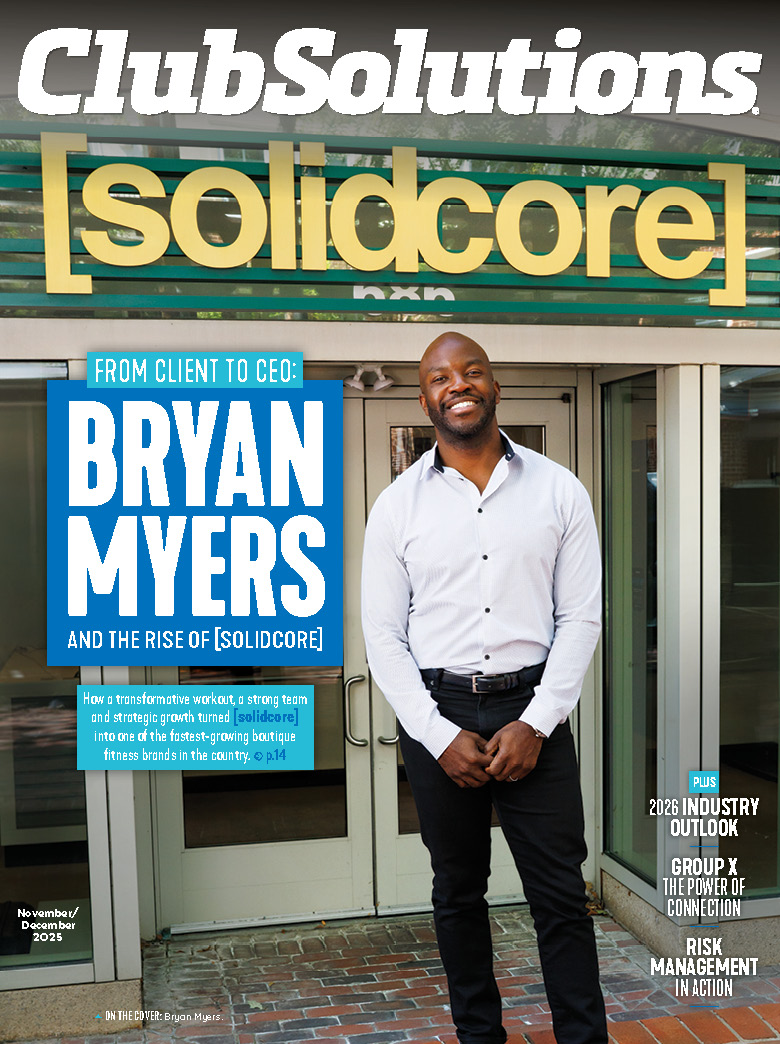Erin Lotta shares the importance of educating members on nutrition and how it plays into retaining them.
Pull out your phone, open a web browser and search “nutrition information.” In a matter of seconds you will be met with billions of search results. This is just one avenue your members can access this information. There are also books, recommendations from friends, podcasts, social media influencers and more, all peddling nutrition-based content.
While it’s a positive members are interested in improving their nutrition, it’s crucial you help them navigate through the misinformation.
For Erin Lotta, a certified personal trainer and certified wellness coach, this starts with empowering members and clients to be more curious and discerning when it comes to the information at their disposal.
“If they struggle with nutrition, chances are they have tried going on different diets or imitating what friends or people in their feed have done to lose weight,” explained Lotta. “Help them avoid falling for the fairytale trap, ‘If it worked for another person, then it will work for me too.’ Failed attempts at dieting and weight-loss decrease self-efficacy and the ability to participate in health promoting behaviors and fitness.”
It’s important to keep in mind there is no quick fix or plan that can be right for everyone when it comes to nutrition. Lotta explained everyone has their own preferences. But, no matter what, encourage your members and clients to stick to evidence-based research such as the four core guidelines of the Dietary Guidelines for Americans, 2020–2025. It’s more meaningful to make decisions about nutrition based on what makes each members’ body feel well, while staying within guidelines.
“A registered dietitian (RD) with a flexible approach to food could create programming for a club to use with these guidelines,” said Lotta. “NASM also has a new wellness coaching certification that supports a well-balanced approach, is evidence-based and would allow a club to counsel its members in good nutrition practices without having an RD on staff. Additionally, dietary approaches such as the DASH diet and Mediterranean diet are both evidence-based guidelines to reducing health risks.”
Health clubs can educate members on true nutritional information and guidance in several ways: promoting the importance of nutrient-dense foods, considering mental and emotional health, and considering access to food, cost of food and cultural foods.
“Education should be free and consistent to get the message across and encourage confidence,” said Lotta. “Create onboarding education, virtual education series, in-person events, one-on-one and group guidance, and social media that all support the same message. Make sure trainers, group fitness and all staff are on the same page and not promoting conflicting messaging and are staying within their scope of practice.”
While nutrition guidance is great for helping your members stay informed and improving their overall health, Lotta said it’s also an over-looked retention variable. Members who are left to their own devices with nutrition could be following diets or lifestyles that are not sustainable. This puts them on a downward spiral when the diet isn’t doable. They stop participating in fitness and other wellness practices, resulting in guilt and shame around all the components of a health journey.
Being proactive about sustainable approaches to overall health and education addresses the factors clubs can’t control with members — going to group fitness classes, participating in personal training, etc. Members’ nutrition, mental and emotional health all work together when participating in fitness programming long term.
“Health clubs have to show up as the professionals and offer nutrition guidance in a holistic way because if members have to search somewhere else for guidance, it could ultimately impact their membership status,” said Lotta.
Erin Lotta’s Top Tips
- Educate members that eating for wellness is not about strict rules, restriction plans or tracking everything they eat, but more about adding in nutrient dense foods that will make them feel satisfied.
- There is no quick fix or plan that can be right for everyone.
- Encourage members to unfollow social media accounts that haven’t helped them in the past.
- Challenge food rules members have picked up along the way.








![From Client to CEO: Bryan Myers and the Rise of [solidcore]](https://d296qbqev3kq48.cloudfront.net/wp-content/uploads/2025/11/06151333/CS-NovDec25-CoverStory-3-350x250.jpg)

